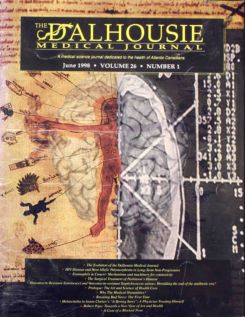Melancholia in Anton Chekhov's "A Boring Story": A Physician Treating Himself
DOI:
https://doi.org/10.15273/dmj.Vol26No1.4426Abstract
In this article, the subject of melancholia is explored in relation to Anton Chekhov‘s short story, “A Boring Story.” This story raises the question of whether the protagonist's melancholic changes in his feelings and thoughts are the result of an underlying organic illness or of new insight into the nature of his existence. The purpose of this article is to examine the implications of this question in their historical context. In terms of the history of psychiatry, the late nineteenth-century disease neurasthenia and some of its causes are discussed. In a broader examination of the history of ideas, the development of psychiatric thought is discussed in relation to the dualisms between mind and body, subject and object, and illness and disease.
Downloads
How to Cite
Issue
Section
License
Authors who publish with this journal agree to the following terms:
- Authors retain copyright and grant the journal right of first publication with the work simultaneously licensed under a Creative Commons Attribution License that allows others to share the work with an acknowledgement of the work's authorship and initial publication in this journal.
- Authors are able to enter into separate, additional contractual arrangements for the non-exclusive distribution of the journal's published version of the work (e.g., post it to an institutional repository or publish it in a book), with an acknowledgement of its initial publication in this journal.
- Authors are permitted and encouraged to post their work online (e.g., in institutional repositories or on their website) prior to and during the submission process, as it can lead to productive exchanges, as well as earlier and greater citation of published work (See The Effect of Open Access).


